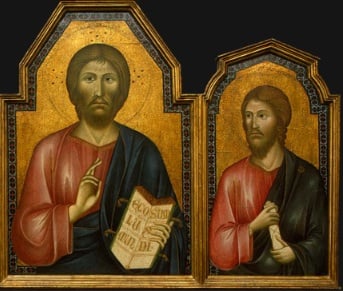The Catholic authorities say no. What about you? Is support of abortion grounds not to permit the eucharist?
Q. When should a Catholic refrain from receiving holy Communion?
A. In November 2006, the bishops of the United States issued a pastoral
document entitled “Happy Are Those Who Are Called to His Supper” which
addressed this question as follows: “In order to receive Holy Communion
we must be in communion with God and with the Church. Mortal sin
constitutes a rejection of communion with God and destroys the life of
grace within us. Mortal sin is an act violating God’s law that involves
grave matter and that is performed with both full knowledge and
complete consent of the will. If we are no longer in the state of grace
because of mortal sin, we are seriously obliged to refrain from
receiving Holy Communion until we are reconciled with God and the
Church” (no. 4)
Q. Is it not the responsibility of the individual Catholic to judge
their worthiness to receive holy Communion? Why would a bishop ask
someone to refrain from presenting himself for reception of holy
Communion?A. Normally, it is the responsibility of the individual Catholic to
make the judgment of whether he or she is able to receive holy
Communion. It is also the responsibility of the individual Catholic to
have a well-formed conscience that is informed by the teachings of the
church. However, if an individual persistently acts publicly in a
manner that is inconsistent with fundamental moral teachings of the
church and continues to receive holy Communion, a bishop may feel
obliged to intervene for the good of the individual and to protect
others from being misled. “Happy Are Those Called to His Supper”
addresses this issue: “If a Catholic in his or her personal or
professional life were knowingly and obstinately to reject the defined
doctrines of the Church, or knowingly and obstinately to repudiate her
definitive teachings on moral issues, however, he or she would
seriously diminish his or her communion with the Church. Reception of
Holy Communion, in such a situation, would not accord with the nature
of the Eucharistic celebration, so that he or she should refrain.” [4]Q. Is a priest or another minister of Communion ever required to deny someone Communion?
A. Canon 915 of the church’s law states: “Those upon whom the
penalty of excommunication or interdict has been imposed or declared,
and others who obstinately persist in manifest grave sin, are not to be
admitted to holy communion.” In my request to Gov. Sebelius, I have
made clear that it is her responsibility not to present herself for
reception of holy Communion. I am hopeful that she will comply with
this request.Pastorally, it is certainly preferable not to burden ministers of
the Eucharist with the responsibility to refuse Communion to someone.
Ministers of Communion do have an obligation to protect the sacrament
from misuse or abuse. I have, at this moment, not asked the ministers
of the Eucharist not to give holy Communion to the governor.Q. What is meant when it is said that Gov. Sebelius’ actions were scandalous?
A. To answer this question, I again refer to “Happy Are Those Who
to be shocked or upset by what one does. Rather, one’s action leads
Are Called to His Supper,” which references the Catechism of the
Catholic Church: “To give scandal means more than to cause other people
someone else to sin. Scandal is an attitude or behavior which leads
another to do evil. The person who gives scandal becomes his neighbor’s
tempter. To lead others into sin is indeed a very serious matter.
Anyone who uses the power at his disposal in such a way that it leads
others to do wrong becomes guilty of scandal and responsible for the
evil that he has directly or indirectly encouraged” (no. 4).Governor Sebelius’ public support for legalized abortion, as a
Catholic, naturally leads others to question the moral gravity of
abortion. In effect, her actions and advocacy for legalized abortion,
coupled with her reception of holy Communion, have said to other
Catholics: “I am a good Catholic and I support legalized abortion. You
can be a good Catholic and support legalized abortion.”

